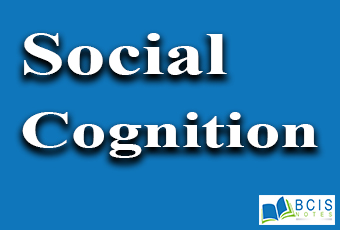
Social Cognition:
Cognition is a mental process in which the information is obtained, transformed, stored, retrieved and used. Social Cognition refers to the way in which we interpret, analyze, remember and use the information about social work. It is the encoding, storage, retrieval and processing of information about the members of the same species. The perception of information about the members of the same species. Social Cognition examines thinking for example:
- How do we perceive others?
- How we solve problems?
- How we make decisions?
- How we form prejudice and attitude?
The processing of information often occurs in two ways:
- Automatic processing of information
- Effortful processing of information
Automatic processing of information:
- We process information easily, smoothly effortlessly and in an unintended manner. This is why we often do two or more things at once. For example; while driving we can talk on the mobile phone, listen to the radio and keep attention to the traffic lights.
- The shift from controlled processing to automatic processing occurs from practice.
Effortful processing of information:
- The cognitive capacities are definitely limited. They require our concentration, focused attention and time. Example; it is difficult to recall the dates, formulas, and scripts that we went through the class, exercise and practice them.
- The processed information is transparent into schemas. Schemas are the past and social experiences about people.
- It affects our attention, energy, encoding, and retrieval processes.
- Information that doesn’t fit with our schemas is often ignored unless it is so extreme that we cannot help but notice it.
Impression formation
- Impression formation means that people try to impress or make the first proper impression to others because it exerts a strong impact on other persons leading to gain significant advantages in many situations. There are two main ways people practice; Self-enhancement and Other enhancements.
Self-enhancement:
- It refers to the individual’s effort to increase their appeal to others. Example; try to look good portraying good images, styles through dress, verbal and non-verbal gestures.
Other enhancements:
- They usually show positive fresh moods and smile while reaching others. These gestures usually play an important role in handling and controlling others.
You may also like Social Behavior

Leave a Reply